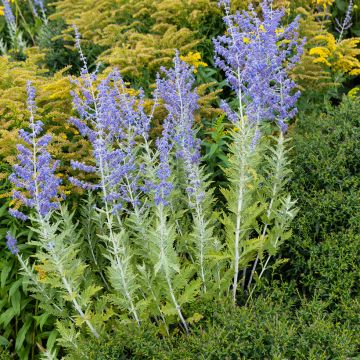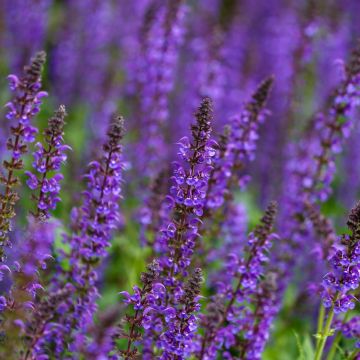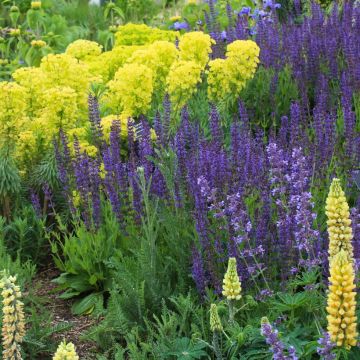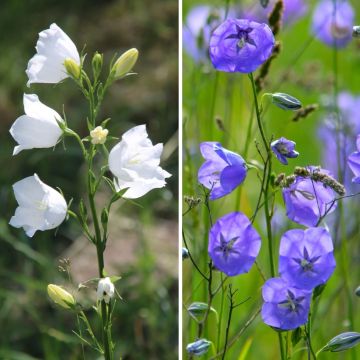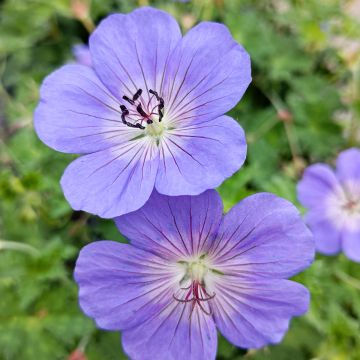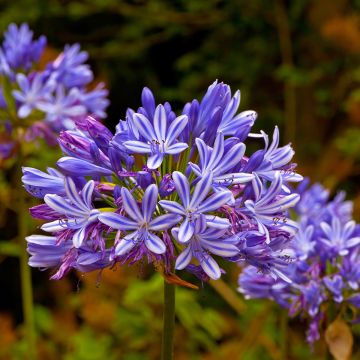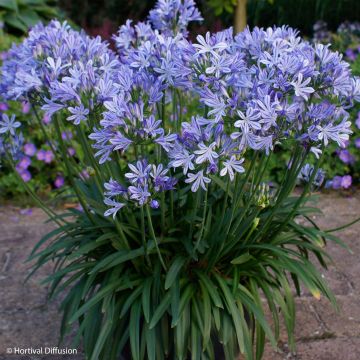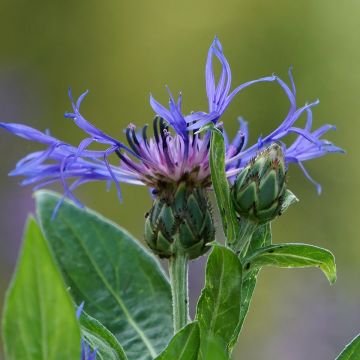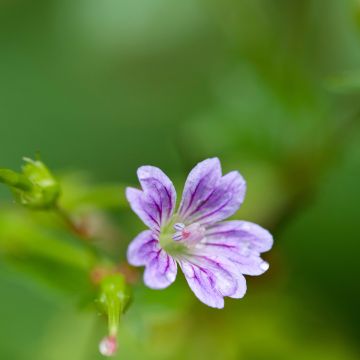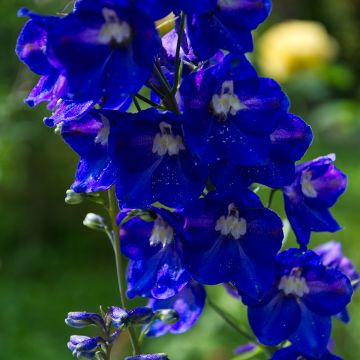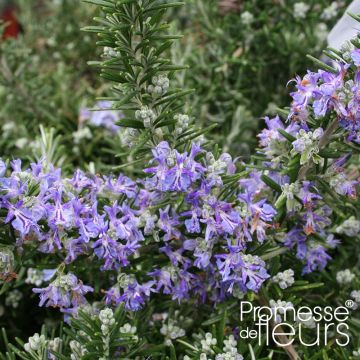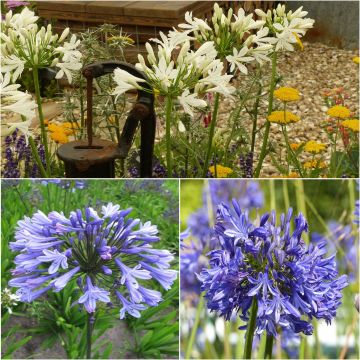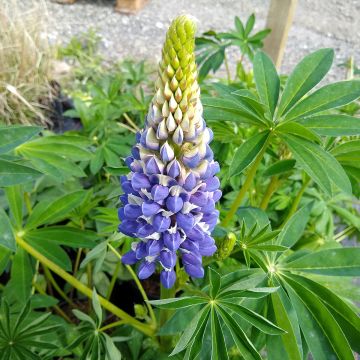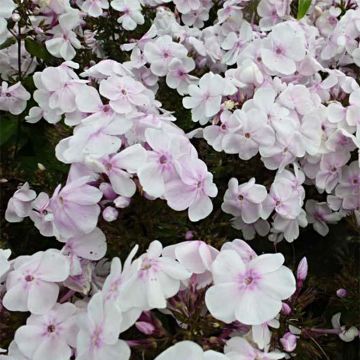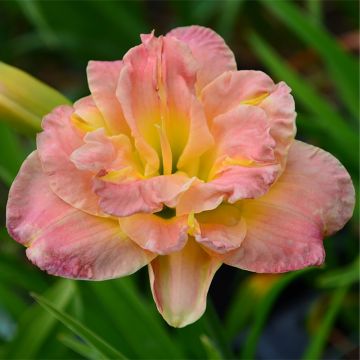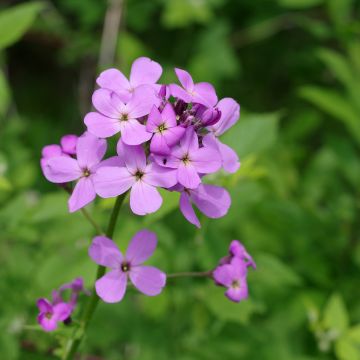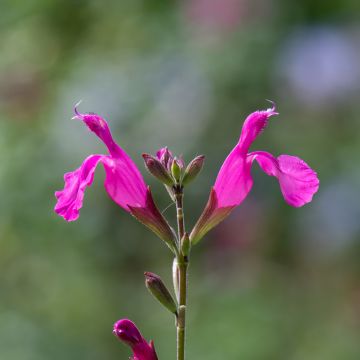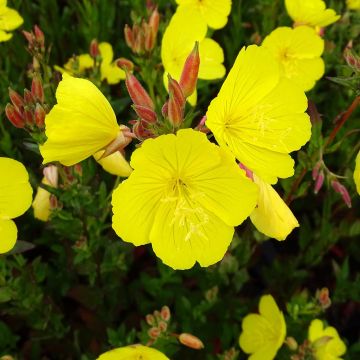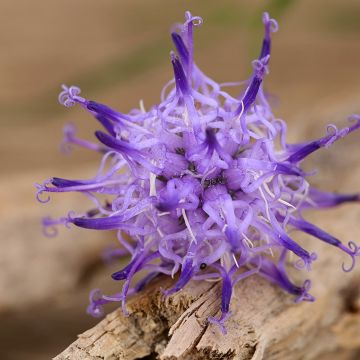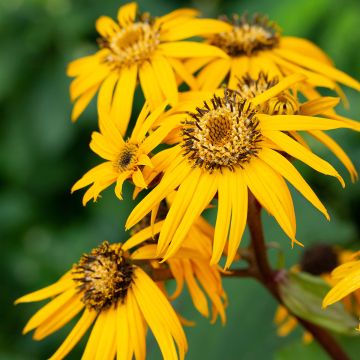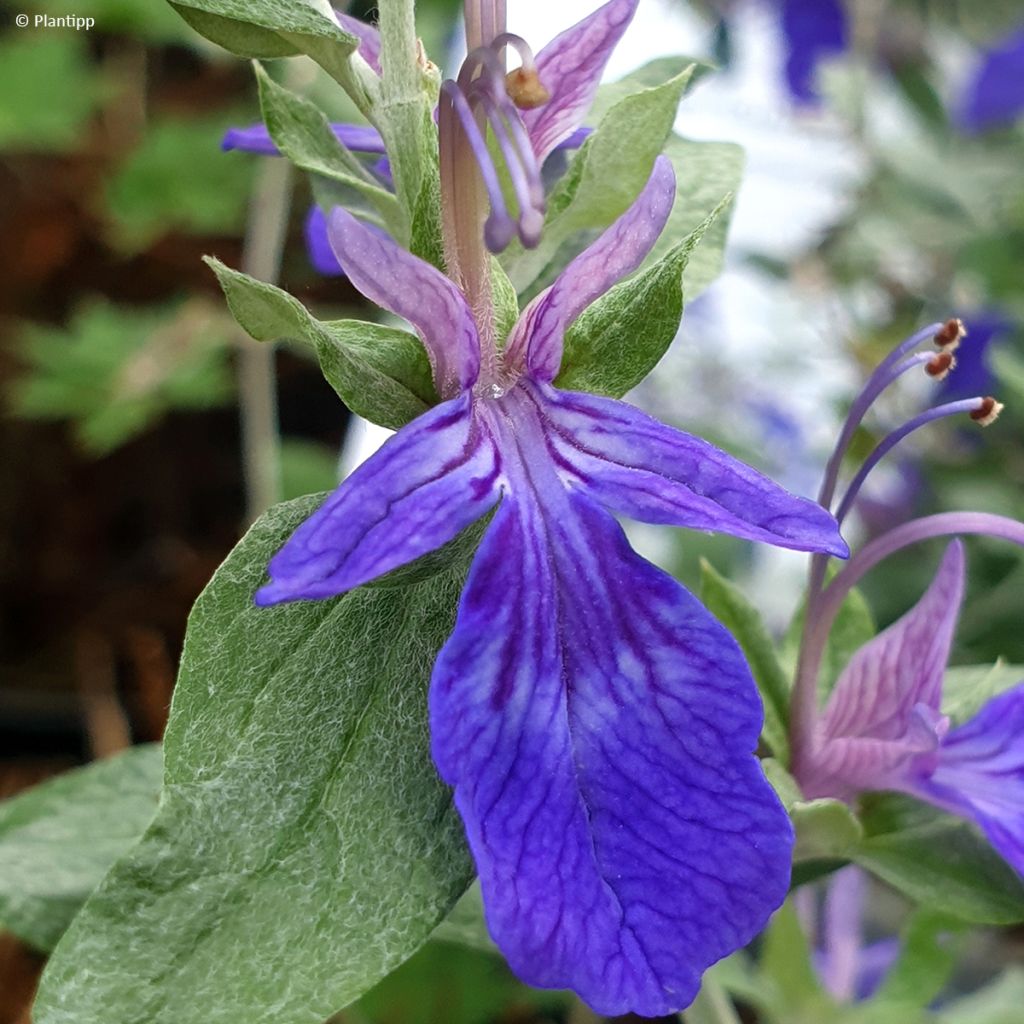

Teucrium fruticans Ventecu
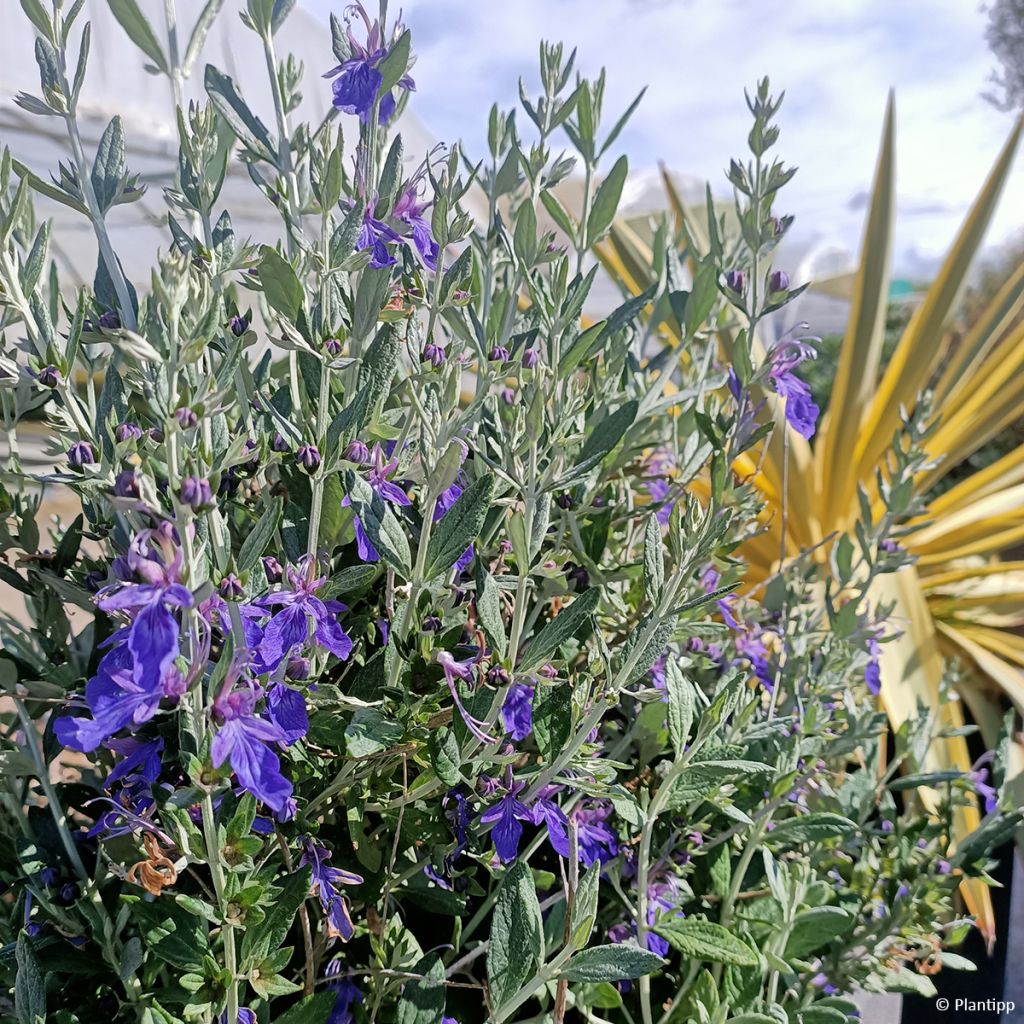

Teucrium fruticans Ventecu
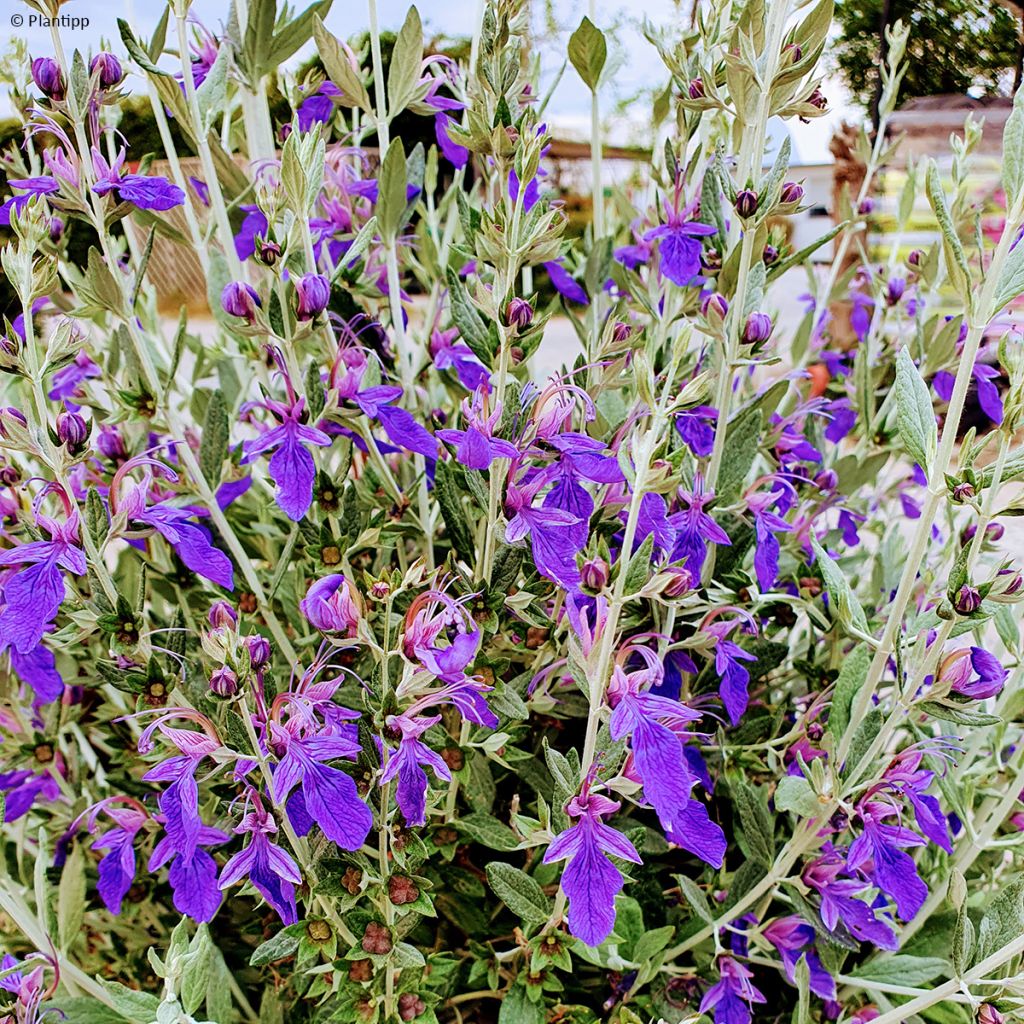

Teucrium fruticans Ventecu
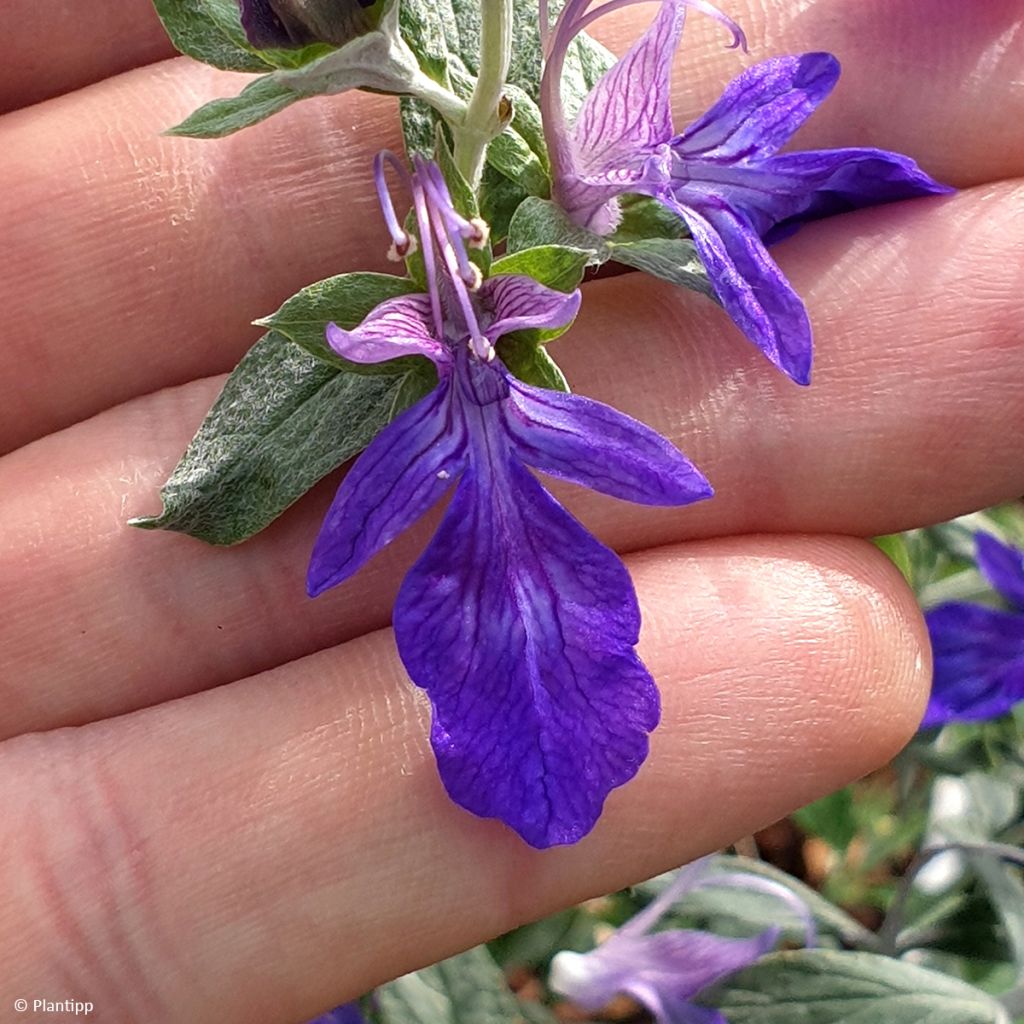

Teucrium fruticans Ventecu
Teucrium fruticans Ventecu
Teucrium (x) fruticans 'Ventecu' Indyho ®
Tree Germander, Shrubby Germander
Why not try an alternative variety in stock?
View all →This plant carries a 24 months recovery warranty
More information
We guarantee the quality of our plants for a full growing cycle, and will replace at our expense any plant that fails to recover under normal climatic and planting conditions.
From €5.90 for pickup delivery and €6.90 for home delivery
Express home delivery from €8.90.
Delivery to Corse prohibited: UE law prohibits the import of this plant from mainland France to Corse as part of the fight against Xylella fastidiosa. Please accept our sincere apologies.
More information
Does this plant fit my garden?
Set up your Plantfit profile →
Description
Teucrium fruticans 'Ventecu' is one of the best varieties of the Shrubby Germander, a drought-tolerant and poor soil bush widely planted in gardens in the Mediterranean region. This bush forms a compact, dense mass of white stems with evergreen silver-grey foliage that perfectly showcases its deep blue flowers. A spectacle that is even more appreciated because it begins in autumn in mild climates and lasts for several months. Other advantages of this germander are its excellent pruning tolerance and resistance to long dry summers. Its only drawback is its limited cold resistance, down to -8/-10°C (17.6/14°F) at the most.
The 'Ventecu' Shrubby Germander is a bush from the mint family, closely related to salvias, mints, and lavenders. Its parent plant, Teucrium fruticans, is native to southern Spain, southern Portugal, and Morocco. In the wild, it can reach 2m (7ft) in all directions. It thrives in sunny and poor soil conditions and can withstand brief frosts of around -12°C (10.4°F).
This cultivar, sometimes sold under the name 'Curaçao', is a French horticultural creation by Vertnantes S.A.R.L dating back to 2019. It stands out from the species with its more compact habit and its much more intense blue flowers (the pale blue-lilac flowers of the wild species are quite discreet). The bush develops square woody stems, covered with a white down, strongly branching at right angles and interlocking to form a dense and overall rounded mass. When fully mature, this variety will reach 80cm (32in) in all directions, up to 1m (3ft) in favourable climates if not regularly pruned. The branches bear small oval, evergreen leaves which are slightly aromatic when crushed. They are covered with a fine white down, giving them a silvery colour that becomes even lighter in dry and warm conditions. The undersides of the leaves are very downy and almost white. The flowering lasts for at least 3 months from October to April-May in the Mediterranean region, and from April to August further north. Small two-lipped, 1.5cm (1in) long flowers veined with bluish-purple on a bright blue background, form in the leaf axils.
When pruned into a ball shape, like box, Teucrium fruticans 'Ventecu' is strikingly original. It can also be used in low shrub borders, as a standalone feature in a rock garden, or in containers on the terrace. It is an ideal bush for coastal areas or dry gardens. You can recreate an authentic Mediterranean atmosphere by pairing it with rockroses, rosemary, and Westringia, bushy salvias, bushy potentillas, etc.
Report an error about the product description
Plant habit
Flowering
Foliage
Botanical data
Teucrium
(x) fruticans
'Ventecu' Indyho ®
Lamiaceae
Tree Germander, Shrubby Germander
Cultivar or hybrid
Other Summer flowering perennials
Planting and care
Teucrium fruticans and its varieties are typical plants of a Mediterranean climate, perfectly adapted to long, dry and hot summers. They thrive in sunny positions, sheltered from strong winds if the garden is located in a borderline hardiness zone. This variety is slightly less hardy than the species and will have the tips of its shoots freeze at -6 to -8°C (21.2 to 17.6°F). If the bush is planted in very well-draining soil (rocky, sandy or gravel-rich), it will withstand temperatures down to -9/-10°C (15.8/14°F), provided that temperatures quickly return to above freezing during the day. It is undemanding in terms of soil type, as long as it is well-draining, and tolerates limestone very well. Once established, it is resistant to drought and requires no watering in summer in all regions. In slightly colder regions, it is best to plant it in spring, while planting in October is recommended in regions with hot and dry summers. It is an easy-to-grow bush. After flowering, shorten the branches that have bloomed by half. It tolerates and even appreciates pruning, including severe pruning, which allows it to rejuvenate and maintain a very dense habit.
Planting period
Intended location
Care
This item has not been reviewed yet - be the first to leave a review about it.
Haven't found what you were looking for?
Hardiness is the lowest winter temperature a plant can endure without suffering serious damage or even dying. However, hardiness is affected by location (a sheltered area, such as a patio), protection (winter cover) and soil type (hardiness is improved by well-drained soil).

Photo Sharing Terms & Conditions
In order to encourage gardeners to interact and share their experiences, Promesse de fleurs offers various media enabling content to be uploaded onto its Site - in particular via the ‘Photo sharing’ module.
The User agrees to refrain from:
- Posting any content that is illegal, prejudicial, insulting, racist, inciteful to hatred, revisionist, contrary to public decency, that infringes on privacy or on the privacy rights of third parties, in particular the publicity rights of persons and goods, intellectual property rights, or the right to privacy.
- Submitting content on behalf of a third party;
- Impersonate the identity of a third party and/or publish any personal information about a third party;
In general, the User undertakes to refrain from any unethical behaviour.
All Content (in particular text, comments, files, images, photos, videos, creative works, etc.), which may be subject to property or intellectual property rights, image or other private rights, shall remain the property of the User, subject to the limited rights granted by the terms of the licence granted by Promesse de fleurs as stated below. Users are at liberty to publish or not to publish such Content on the Site, notably via the ‘Photo Sharing’ facility, and accept that this Content shall be made public and freely accessible, notably on the Internet.
Users further acknowledge, undertake to have ,and guarantee that they hold all necessary rights and permissions to publish such material on the Site, in particular with regard to the legislation in force pertaining to any privacy, property, intellectual property, image, or contractual rights, or rights of any other nature. By publishing such Content on the Site, Users acknowledge accepting full liability as publishers of the Content within the meaning of the law, and grant Promesse de fleurs, free of charge, an inclusive, worldwide licence for the said Content for the entire duration of its publication, including all reproduction, representation, up/downloading, displaying, performing, transmission, and storage rights.
Users also grant permission for their name to be linked to the Content and accept that this link may not always be made available.
By engaging in posting material, Users consent to their Content becoming automatically accessible on the Internet, in particular on other sites and/or blogs and/or web pages of the Promesse de fleurs site, including in particular social pages and the Promesse de fleurs catalogue.
Users may secure the removal of entrusted content free of charge by issuing a simple request via our contact form.
The flowering period indicated on our website applies to countries and regions located in USDA zone 8 (France, the United Kingdom, Ireland, the Netherlands, etc.)
It will vary according to where you live:
- In zones 9 to 10 (Italy, Spain, Greece, etc.), flowering will occur about 2 to 4 weeks earlier.
- In zones 6 to 7 (Germany, Poland, Slovenia, and lower mountainous regions), flowering will be delayed by 2 to 3 weeks.
- In zone 5 (Central Europe, Scandinavia), blooming will be delayed by 3 to 5 weeks.
In temperate climates, pruning of spring-flowering shrubs (forsythia, spireas, etc.) should be done just after flowering.
Pruning of summer-flowering shrubs (Indian Lilac, Perovskia, etc.) can be done in winter or spring.
In cold regions as well as with frost-sensitive plants, avoid pruning too early when severe frosts may still occur.
The planting period indicated on our website applies to countries and regions located in USDA zone 8 (France, United Kingdom, Ireland, Netherlands).
It will vary according to where you live:
- In Mediterranean zones (Marseille, Madrid, Milan, etc.), autumn and winter are the best planting periods.
- In continental zones (Strasbourg, Munich, Vienna, etc.), delay planting by 2 to 3 weeks in spring and bring it forward by 2 to 4 weeks in autumn.
- In mountainous regions (the Alps, Pyrenees, Carpathians, etc.), it is best to plant in late spring (May-June) or late summer (August-September).
The harvesting period indicated on our website applies to countries and regions in USDA zone 8 (France, England, Ireland, the Netherlands).
In colder areas (Scandinavia, Poland, Austria...) fruit and vegetable harvests are likely to be delayed by 3-4 weeks.
In warmer areas (Italy, Spain, Greece, etc.), harvesting will probably take place earlier, depending on weather conditions.
The sowing periods indicated on our website apply to countries and regions within USDA Zone 8 (France, UK, Ireland, Netherlands).
In colder areas (Scandinavia, Poland, Austria...), delay any outdoor sowing by 3-4 weeks, or sow under glass.
In warmer climes (Italy, Spain, Greece, etc.), bring outdoor sowing forward by a few weeks.

































